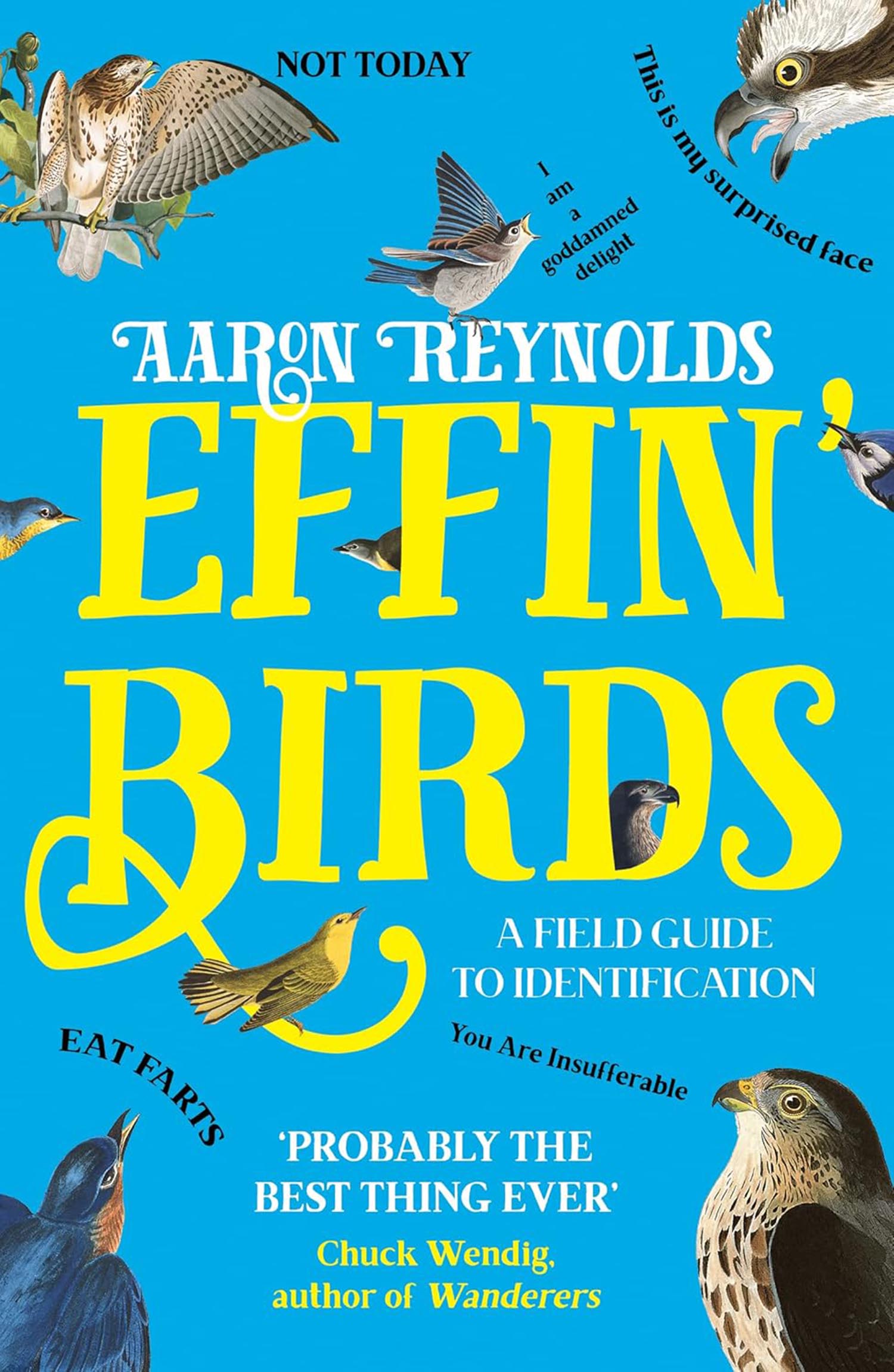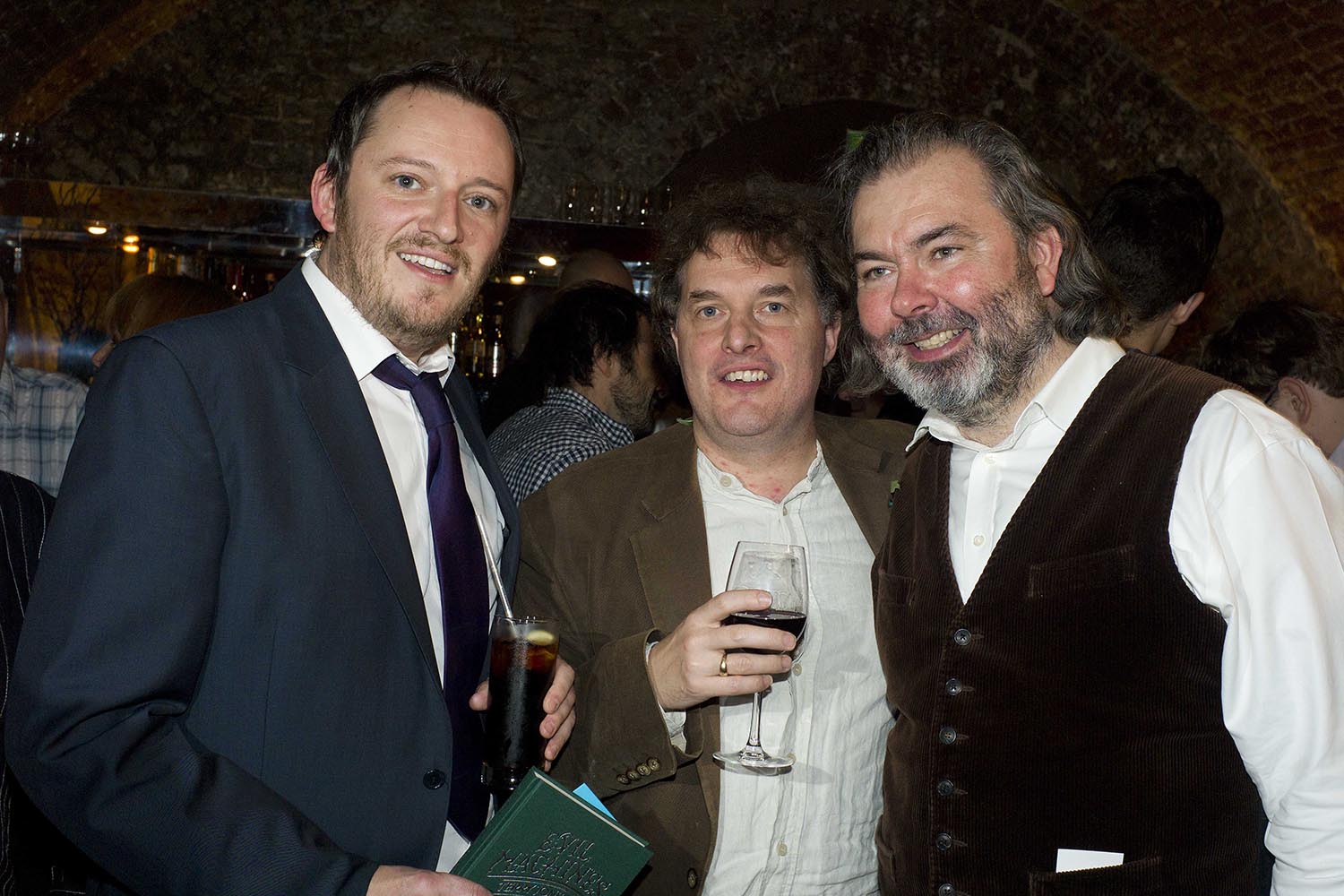The revolution started in a small writer’s shed in 2011, amid the deck chairs, tents and bunting of the Hay festival, the highlight of the literary calendar. The talk was of shooting a rocket through the world of publishing.
Three friends – John Mitchinson, Justin Pollard and Dan Kieran – were launching a new company, one that they hoped would “democratise the book commissioning process”, with authors pitching their ideas directly to readers, who would choose whether or not to invest. Writers would crowdfund and profits would be split 50:50 between publisher and author – far more generous terms than the 10% royalties usually offered by others.
It would be author-led, author-first, the founders said. It would be a way for books that would otherwise be passed over by the old-school editors in traditional publishing houses to find their audience, and fly.
Over 14 years, that company, Unbound, published titles including Nikesh Shukla’s The Good Immigrant, Kit De Waal’s Common People and the Booker-longlisted novel The Wake by Paul Kingsnorth. Film rights for The Wake were optioned by actor Mark Rylance, one of the book’s original supporter-investors. The Good Immigrant was supported by the likes of David Nicholls, JK Rowling and Jonathan Coe. All three were seen as titles that would have been overlooked by the publishing establishment.
When Cain’s Jawbone, a 90-year-old murder mystery created by former Observer crossword setter Edward Powys Mathers, was re-published by Unbound in 2019, thanks in part to viral TikTok videos, it became a breakout hit and, according to the company’s directors, propelled Unbound into profit for the first time.

The Good Immigrant, published by Unbound, was supported by David Nicholls, JK Rowling and Jonathan Coe
While the company had the shine of a tech startup, it also cultivated the prestige of a traditional publisher, with London offices at various times in Soho and St James’s. Mitchinson would go on to be the longest-serving member of the team, with Pollard stepping back from the company in 2014, and Kieran, who served as CEO from the start until March 2022. Mitchinson commanded great respect in the literary community, with a long career in publishing and entertainment, including as marketing director at Waterstones and head researcher on the brainy BBC gameshow QI. Many of Unbound’s authors and staff members named him as a key factor in their desire to work with the firm.
The company’s model felt risk-free, many authors said. If the crowdfunding campaign gained enough supporters, they would write the book. If it didn’t, they had lost some time spent drumming up support, but not much else.
But in March this year, Unbound went into administration, owing nearly £2.5m to creditors. Hundreds of authors claim they are collectively owed more than £600,000. Some individuals say they are owed tens of thousands of pounds each. They have been told by Unbound’s administrators they are unlikely to ever see that money. Last week, the company’s trading successor, Boundless Publishing Group Limited, also ceased trading. It is understood staff were told on Friday they were being made redundant.
The Observer spoke to 15 authors and seven former members of staff, as well as other people in the publishing industry, about what went wrong at Unbound. According to documents seen by The Observer, there was some financial disorganisation at the company dating back to at least 2018, indicators of cash flow problems, concerns about alleged discrepancies in sales figures, and evidence of the company seemingly selling books to which it no longer held the rights. Records seen by The Observer also appear to show missing pension contributions.
In statements provided to administrators, the company’s directors highlighted “historical poor management of printing costs and associated cash flow, ultimately leading to the company’s inability to sustain its operations”.
Some authors are now urging the administrators to investigate concerns of possible “director misfeasance and breach of creditor duty”, a phrase they used in a letter, questioning whether their royalties were used to cover other business costs, and citing concerns that book sales – and therefore the money owed to them – may have been understated.
“They had this reputation as this ethical, groundbreaking, interesting publisher,” says one former staff member. “But it wasn’t long before I thought: this isn’t quite what it seems on the surface.”

Author Tom Cox, one of Unbound’s success stories, had to chase the publisher for payments
Tom Cox first published a book with Unbound in 2017. An experimental blend of memoir, nature writing and folklore, 21st-Century Yokel earned glowing reviews.
He had been working with traditional publishers, but the sort of cross-genre works he wanted to branch out into were deemed too risky. Unbound welcomed them.
Cox became one of Unbound’s big success stories, publishing multiple books, often meeting his targets within hours of launching a crowdfunding campaign. He enjoyed working with the “great editors” assigned to his projects and felt “lucky” to be part of the endeavour. “I was not just one of their authors – I was an evangelist for what they were doing.”
But about three years ago, Cox and his agent started having to chase the company for payments, with royalty statements arriving later than promised.
Cox was not alone. Canadian author Aaron Reynolds had been approached by Unbound to turn his comic book series, Effin Birds, into a book in 2017. In April 2018, he was promised an imminent “author bonus” because his project had been funded so quickly – but in October 2019, he was still chasing it. In 2019, Reynolds also had to chase his first royalty statement and payment from the company – due in September. He finally received an email response from a staff member at Unbound in mid-October that read: “I’ve a terrible feeling this fell through the cracks.”
Reynolds says he experienced statement and payment delays over six years and two books, and particular trouble securing statements and payments from the North American sales of his works. In November 2020, he was finally told by Unbound’s finance manager that the company had figured out that his royalty statements from his US/Canadian publisher Penguin Random House “were being sent to an old residential address of our CEO”. It is unclear exactly whose house it was sent to. Problems continued into 2023.
Former staff members say they raised concerns about authors not being paid as early as 2021. “I asked repeatedly whether certain authors had been paid and felt management were fobbing me off,” says one former employee. One senior finance staff member who left in early 2024 said that, to their knowledge, “all author payments were up to date” at this point.

Aaron Reynolds believes sales of his second book may have been understated to him by more than 10,000 copies
Success brought other issues. Multiple authors told The Observer they had problems securing new print runs after their books sold out. A member of Unbound staff told Cox in February 2023 that the “big hit” Cain’s Jawbone was “stretching” the company and had “slowed up reprints across our other titles”.
One staff member says there were times, from as early as 2019, when senior colleagues would instruct them to postpone ending unsuccessful crowdfunding campaigns for financial reasons. They claim “staff would be told, ‘Can you persuade them to wait a month or two or three?’ Because there wasn’t the money to refund the pledges.”
The cost of reprints came out of authors’ profits, a detail that some authors and agents allege was not always stated in their contracts. Other expenses, such as marketing, also came out of authors’ profits – some say they are still unsure how that money was spent. At least eight authors describe receiving their royalty statements and being surprised by deductions or that they had made little profit, despite raising more funding than required or achieving strong sales.
Some of the most serious accusations levelled against Unbound by authors relate to alleged sales discrepancies. Most authors who spoke to The Observer say they felt that sales and royalty statements were opaque, often changing as the company’s software changed, making it hard to keep track from year to year. Post-insolvency, when some authors requested the remaining copies of their books from warehouses, they say that the numbers available did not square with the sales they believed had been made. Some authors provided statements alongside numbers from North American sales tracking platform Ingram that appear to show differences in sales numbers. Reynolds believes it appears sales of his second book were understated to him by more than 10,000 copies.
The American author Alex de Campi, who also accessed sales figures via Ingram, believes that the US physical book sales of her novel The Scottish Boy may have been under-reported by nearly 4,000 copies, which she said equates to about £12,450 in royalty payments. Another author who did not want to be named was allegedly told by Unbound that their book did not break even in the US market, yet figures appear to show that it has sold nearly 7,000 copies, making $80,000 in revenue.
In April 2024, authors began to realise that all was not well. They had been expecting their biannual profit statement and payment that month, but nothing appeared. In some emails, staff pinned the delay on “a new accounting system”. In July 2024, Mitchinson explained to multiple authors that a fundraising round for “digital initiatives” had hit its £750,000 target in April, but the funds had not yet materialised. “This has put our cash flow under intense pressure,” he wrote. Authors should not expect payment until August. In an email sent the same month, he told another author that while some small payments had been made up until May, Unbound had “certainly not been able to make any payments at all at present”.
As the year went on, there were some signs of optimism. In September 2024, Unbound announced the relaunch of its online literary magazine, Boundless, and acquired independent publisher Neem Tree Press.
But for some authors, the promised August money had not materialised. The year’s second royalty statements were now late too. Emails sent to authors in December informed them: “A substantial investment in the business due in October didn’t materialise, putting our cash flow under intense pressure.” Rumours swirled in the industry that the end was nigh. Some authors began reclaiming the rights to their works. Others trusted promises from the company’s leadership that the money was on its way.
‘I realised if a friend wanted to publish a book with Unbound, I would have to say to them: just don’t.’
Former Unbound employee
Staff members working at the company in 2024 claim they sometimes couldn’t access internal funds needed to execute planned work. External contractors were saying they hadn’t been paid. “I’d constantly be chasing to try to get them paid,” says one former employee. “I would go to our finance team, sometimes I’d copy in the CEO, but would rarely get an answer.”
In late summer, some staff members started to notice that they were owed money too. Pension contributions had been taken from their monthly pay, but neither this nor the company’s contribution appeared to have been added to their pension pots. Records show that pension payments were not made to some staff members by Unbound in July, August, September, November and December 2024. In an internal message to employees, the company’s finance manager said this had been caused by an expired direct debit and problems reinstating payments originally set up by a former employee. But staff wondered: if this was the case, why had October’s payment seemingly been made without issue?
When multiple employees flagged the issue, catch-up payments began in 2025. But by the time the company went into administration, two months remained unpaid.
In a statement to The Observer, Mitchinson said: “I strongly refute any suggestion that Unbound’s senior management or board behaved inappropriately at any point. Unbound went into administration because it ran out of cash when promised investments weren’t made.” Mitchinson has not disclosed the name of the investors who pulled out.
In December 2024, CEO Will Harris – in the job since June 2022 – stepped down, with Archna Sharma, the head of Unbound’s new imprint Neem Tree Press and a former investment banker, stepping into the role. One email from Mitchinson to author De Campi on 23 December said: “We’re in survival mode at present – we need £125k in before the end of the year.”
In January this year, some authors received messages saying: “We remain absolutely committed to paying all of our outstanding debts.”
But by 10 March, it was over. The company was declared insolvent, and sold for £50,000 through a pre-pack administration process to the newly established Boundless Publishing Group, led by Sharma and Mitchinson.
Authors were told this would be “a fresh start” – “your contract will be honoured and transferred to the new company… All outstanding monies will be paid.” Many kept faith, believing that this company, whose ethos had always been authors first, would come through.
In the early hours of 30 May, another email arrived. Addressed from Sharma, it said Boundless had no obligation to pay outstanding royalties – a legal truth. Days later, Mitchinson and multiple other senior staff members resigned.
Both authors and ex-staff spoke highly of colleagues and the company’s mission, describing an environment where everyone was passionate about publishing and supporting authors. But many felt disillusioned by the time they exited. “When I started, everyone was proud to work there,” said one former worker. “When I left, I realised if a friend wanted to publish a book with Unbound, I would have to say to them: just don’t.”

Unbound was unveiled at the Hay Festival in 2011
Crowdfunding had seemed like a panacea for two of the publishing industry’s biggest problems: profitability and the treatment of authors. But it seems there was a tension at the heart of Unbound. Was it a tech company that could be exponentially scaled up and sold off? Or was it a traditional publishing company tapping into new authors and revenue streams? More than a decade in, Unbound didn’t appear to have been able to answer that question. While it tried, external investment plugged the gap.
If it was a scalable tech company, Unbound needed unlimited authors to crowd fund projects to take a cut of, and enough staff to service every title. If it was a more traditional publishing company, it needed bestsellers to subsidise smaller titles.
The crowdfunding model thrived when an author had an existing online audience, and commissioning editors were tasked with finding those people. One staff member said editors had “untenable” targets, another said they’d quickly exhaust their contacts, resorting to trawling the internet for “people who’d gone viral or built a following, but had no idea how to make money out of it”.
Ultimately, there weren’t unlimited potential authors. And not all who had initial crowdfunding success had wide enough appeal to then be sold in shops. “We were telling authors that they’d have a traditional publishing journey, but that wasn’t always possible,” said one staff member. Not everyone with a big audience had the skills to write a good book; not everyone with a good book had the audience needed to crowd fund it.
Crowdfunding required a lot of unpaid work by authors too, raising the initial funds then fielding queries from supporters, which many felt took them away from writing. “We all realise that writers these days do have to do more marketing and PR, but it’s just to an insane extent, it’s never been like that with another publisher,” said Cox.
Then, as Unbound took on more authors, it didn’t always have more staff to service them. Multiple rounds of redundancies meant staff were exiting with regularity. “I was there for less than three years and they had three rounds of redundancies,” said one ex-employee.
When the company hit on a bestseller, other titles felt neglected. Multiple authors feared they missed out on sales. Authors bought into the promise that they’d get a better deal – a more respectable, supported route to the wider market than self-publishing and a decent share of profits – plus a real connection with their readers. In reality, they say, Unbound was rarely able to deliver on that promise and many fear their relationship with readers has been irreparably damaged.
In Mitchinson’s resignation statement, he wrote: “There is, in particular, a great deal to be said about businesses that over-rely on external investors – a vulnerability that proved near-fatal in Unbound’s case.”
In statements to The Observer, co-founders Kieran and Mitchinson rejected the idea that Unbound’s business model was fundamentally flawed. “Like many companies, reaching profitability was a long and difficult journey,” Kieran said, adding that the company enjoyed a decade of success amid tough conditions for the wider industry. He said that the business had achieved profitability by the time he left and that he was “shocked to discover the scale of the company’s financial problems” when the company was put into administration.
“The Unbound model worked well for many books for a long period of time,” said Mitchinson. “Had the business been as flawed as has been suggested, it would not have lasted for almost a decade and a half. The excellence of the team and the quality of the books we published are what make the events of recent months so painful and regrettable. I remain fiercely proud of what we achieved and devastated by how it has ended.”
When news of the insolvency came, not only were authors owed royalties, but those who had secured funding for books yet to be published had no idea if they would go ahead. Readers who had pledged money were left in limbo too.
Most authors who spoke to The Observer said they have taken the rights to their works back from Unbound, or are in the process of doing so. Regardless, many of their books are still being sold under the Unbound/Boundless name on Amazon and at other retailers. Reynolds shared receipts showing that a bookshop was able to purchase more than 100 copies of his books via North American distributor Ingram only last month. Authors wonder where this money is going. They aren’t currently seeing any of it.
‘I felt for a while like I was in some alternative to conventional publishing that was fighting the good fight. I feel really silly for having thought that now’
Tom Cox, author
Last week, authors of Boundless imprint Neem Tree Press received an email from CEO Sharma. “Perhaps this will not come as a surprise to some of you and I am incredibly sad to be sending out this message. Some of you know that I have been trying hard to effect a rescue of Neem Tree Press but it’s proved impossible and I’m incredibly sorry, but unfortunately I have been unable to save the company from the ongoing issues with Unbound/Boundless. [Both] will be shutting down. There will [be] no rescue entity.”
However, Boundless authors who spoke to The Observer said they received no communication from the company directly.
In a statement to The Observer, Sharma said: “I poured my heart into rescuing Unbound through Boundless Publishing Group, and of course in building Neem Tree Press over a number of years, championing wonderful authors. I fought as hard as I could – through a challenging acquisition, a restructuring process, and an unforgiving economic climate – but ultimately, the financial and operational pressures proved too great to overcome.”
Those still trying to pursue money owed from Unbound now feel even more hopeless. A “creditors’ committee” of five authors has been formed and will pass evidence to the administrators.
The saga shows, one literary agent says, “the story of publishing … that the author, the unsalaried person, the freelancers, the unsecured people, are the ones who get paid last.”
Kieran told The Observer: “I am deeply saddened and sorry that despite the successes the business achieved, so many people have been let down.”
Cox says he has only managed to stay afloat financially because of his loyal readership on Substack. “If I did not have Substack, I would’ve been so screwed by this. I have a disabled partner who had to stop working around the same time this all kicked off.” Other authors in a WhatsApp group of those affected have said they are struggling to pay their rent or mortgages.
“I felt for a while like I was in some alternative to conventional publishing that was fighting the good fight,” Cox says. “I feel really silly for having thought that now.”
The Bookseller has reported that Will Atkinson, former head of Atlantic Books, has set up a new publishing company, Wilton Square, to “provide a safe and secure home” for Unbound’s authors – some, like Cox, have already found other avenues towards publication, but many are left in limbo. This new venture offers, at least, the possibility of a happy ending.
Photograph by Alan Davidson/Shutterstock and Annabel Ross

